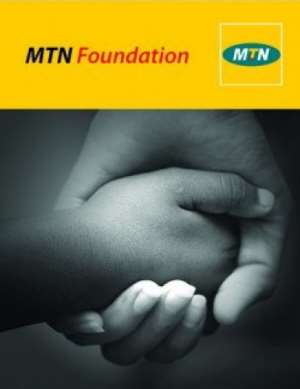
MTN Ghana Foundation Thursday conducted a national blood donation exercise to collect 3500 pints of blood to stock blood banks across the nation as part of its celebration of the Valentine's Day.
The exercise was part of MTN Ghana Foundation's 'Save-a-Life Campaign' to revive lives through encouraging and motivating staff, stakeholders and the public to voluntarily donate blood.
The campaign is being supported by the National Blood Service, the 37 Military Hospital, and the Greater Accra Regional Hospital.
Mr Robert Kuzoe, the Executive Secretary of the MTN Ghana, referred to the World Health Organisation (WHO), as saying the lack of access to safe blood was responsible for the deaths of hundreds and thousands of childbearing women each year.
The WHO, he said, estimates that one to three per cent of the population needed to become blood donors.
According to the National Blood Service, population requires 270,000 units of blood, however, only 160,000 units are collected, which leaves a deficit of 40 per cent.
Mr Kuzoe said the MTN, therefore, found it necessary to contribute its quota to saving lives through the exercise.
Thus since 2011, it has contributed to 9500 pints of blood.
'The MTN has recorded many heart-warming stories of people whose lives have been saved through the exercise,' he said.
'We are very glad to have another opportunity to show our customers and all Ghanaians that we are a caring company,' he said. 'We believe that the availability of safe blood is critical in health administration and we are happy to assist'.
The exercise was conducted in the Greater Accra, Ashanti, Volta, Eastern, Central, Western, Brong Ahafo, Northern, Upper East and West Regions at places earmarked as bleeding centres.
He announced that dedicating 2019 as a 'Year of the Customer', MTN Ghana had planned several health projects to improve healthcare delivery to its customers.
Madam Joyce Oppong Adu, a Senior Blood Recruiter of the National Blood Service, said the eight blood groups (A+, A-, B+, B-, AB+, AB-, O+, O-) especially the O+ and O- were scarce at blood banks, and could only be produced through blood transfusion.
The need for a collaborative effort from the entire citizenry to supply the blood banks, she said, was critical.
Patients of accident cases, sickle cell anaemic patients and expectant mothers who may need emergency surgery are among those who need blood to survive.
She noted that for years now, the focus had been on patients or recipients of blood as beneficiaries, however, donors were also beneficiaries of the exercise as they received free health screening, get to know their blood groups and their haemoglobin levels, and certificates of participation.
Eligible donors are persons fit within the ages of 17 and 60 who weigh 50 kilogrammes and above.
They could donate every four months, she said, and advised the public to do away with the misconception that slim persons were not fit enough to donate.
—GNA




 Meta releases new version of conversational AI across its platforms
Meta releases new version of conversational AI across its platforms
 Cape Town named Africa’s Best Airport 2024 by Skytrax
Cape Town named Africa’s Best Airport 2024 by Skytrax
 Bono East: Four injured after hearse transporting corpse crashes into a truck
Bono East: Four injured after hearse transporting corpse crashes into a truck
 ‘Be courageous, find your voice to defend our democracy’ — Sam Jonah urges journ...
‘Be courageous, find your voice to defend our democracy’ — Sam Jonah urges journ...
 Exodus of doctors, nurses and teachers have worsened because of unserious Akufo-...
Exodus of doctors, nurses and teachers have worsened because of unserious Akufo-...
 2024 election: Avoid insults, cutting down people in search of power – National ...
2024 election: Avoid insults, cutting down people in search of power – National ...
 ‘You passed through the back door but congratulations’ — Atubiga on Prof Jane Na...
‘You passed through the back door but congratulations’ — Atubiga on Prof Jane Na...
 Government’s $21.1 billion added to the stock of public debt has been spent judi...
Government’s $21.1 billion added to the stock of public debt has been spent judi...
 Akufo-Addo will soon relocate Mahama’s Ridge Hospital to Kumasi for recommission...
Akufo-Addo will soon relocate Mahama’s Ridge Hospital to Kumasi for recommission...
 We must not compromise on our defence of national interest; this is the time to ...
We must not compromise on our defence of national interest; this is the time to ...
